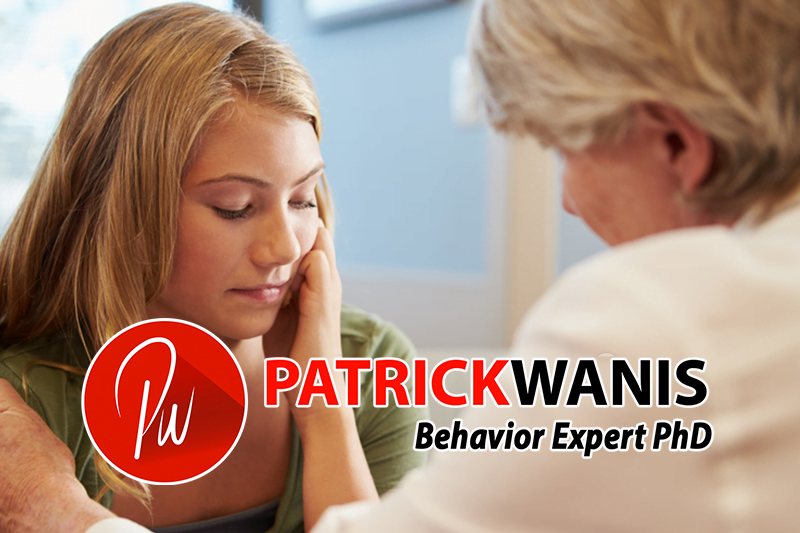 In this week’s Success Newsletter, I would like to talk about guilt: do you feel guilty when others feel guilty for what they did to you?
In this week’s Success Newsletter, I would like to talk about guilt: do you feel guilty when others feel guilty for what they did to you?
First a quick update:
Listen to the interview I gave on “Overcoming Fear” (Annie Jenning’s PR).
Look for my new eBook “Find Love Fast” this week.
Listen to the controversial interview I gave to Sally Jessy Raphael’s syndicated radio show speaking about Macy Gray and her comments that “Woman is the nigger of the world”.
To listen to my full interview visit to Radio-Interviews.
Now let’s talk about guilt.
The dictionary defines guilt as:
a. Remorseful awareness of having done something wrong. Self-reproach for supposed inadequacy or wrongdoing
It is a common response that when we do something wrong, we will feel guilty or bad. What matters the most is the way we respond to our guilt. Do we choose to beat ourselves up over our wrongdoing? Do we choose to condemn ourselves, making ourselves feel only worse? Do we say negative things to ourselves such as “I am an idiot…I am stupid…I am a loser…?” Or do we separate ourselves from our actions, accept responsibility for what we have done, try to make amends and learn from the mistake?
A healthy approach is to say, “I made a mistake. It was a stupid thing to do. Next time, I will do it differently…etc.” Note that saying “I am stupid” is very different to saying “What I did was stupid.” The former only damages and lowers your self-esteem and self-image without helping you to learn, grow or evolve from the experience.
Another aspect of guilt is the way we respond to someone who has wronged us. For example, I recall one time with a girlfriend, she said the most horrible thing that anyone had ever said to me. And although I knew intellectually that it was not about me, it was not justified, and that I had done no wrong, the words still hurt me deeply. In fact, they hurt me so much that I walked out of the room in tears. The girl followed me and apologized, stating that she is such a horrible person. I could tell instantly that she did feel remorseful and bad for what she had said. And in that moment, I put aside what I was feeling and said. “Oh, maybe it’s not your fault. Maybe I pushed you too far. Maybe I caused you to say those words. Don’t feel bad. I promise that I will never bring it up again.”
Although one might say that my response was gracious and forgiving, that it is not the truth. What I was actually doing was refusing to face my own pain and hurt. Instead of expressing my hurt over her words, I felt bad that she felt bad. I felt guilty that she felt guilty. I was feeling inadequate for her wrongdoing. In other words, I was putting her feelings first. I was in effect, saying that my feelings do not count and that hers are more important than mine. When people respond in this way it is often a reflection of childhood beliefs whereby the child ignores its own feelings and pain and thinks only of those around it. From experience with my clients, this is equivalent to a parent saying to its child, “Look, you made your mother cry…stop crying you are hurting me/infuriating me…I don’t care what you want, do as I tell you…etc.”
The healthy approach is for a parent to acknowledge to its child that the child’s feelings are important and then proceed to explain the situation, event, rules of the house, etc. When a parent denies the child the opportunity or freedom of expression, the child grows up believing that its feelings do not count, that it is not valuable. When a parent lays guilt on the child or punishes it for expressing its feelings then the child will grow up and shut down its feelings and expression. The subconscious belief will be “I am not allowed to feel or express myself…my feelings are not important…everyone else’s feelings are more important than mine…etc.” The result is low self-esteem, fear of rejection and the need to please others at the sacrifice of one’s own feelings or desires.
In a relationship, I suggest that you observe your responses. If someone has wronged you, let them know about how hurt you feel, speak up for yourself and allow the other person to acknowledge your feelings and hurt and allow him/her to make up for what has happened.
Remember, freedom of expression is a key component of happiness. Read my book, “How to Find Happiness” .
Remember to check out my blog on my website to read my past Success Newsletters, post your comments and take a few exciting quizzes. If you have received this newsletter as a forward and would like to receive all of my newsletters please enter your email address on the home page.
I wish you the best and remind you “Believe in yourself -You deserve the best!”
Patrick Wanis
Celebrity Life Coach, Human Behavior & Relationship Expert & Clinical Hypnotherapist
www.patrickwanis.com
Anointed “The Woman Expert” by WGN Chicago, Patrick Wanis PhD is a renowned Celebrity Life Coach, Human Behavior & Relationship Expert who developed SRTT therapy (Subconscious Rapid Transformation Technique) and is teaching it to other practitioners. Wanis’ clientele ranges from celebrities and CEOs to housewives and teenagers. CNN, BBC, FOX News, MSNBC & major news outlets worldwide consult Wanis for his expert insights and analysis on sexuality, human behavior and women’s issues. Wanis is the first person ever to do hypnotherapy on national TV – on the Montel Williams show.
